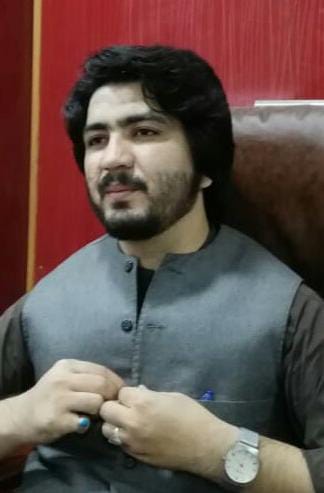
All wars must end someday. But what will be the final chapter of the Russo-Ukrainian War? With a bang, a white flag, or an unwilling agreement?
Planning a quick victory, Moscow envisioned an indomitable Russian army to wipe out crumbling Ukrainian resistance. But Ukrainian courage, NATO weaponry, and Russian military incompetence prevented a quick victory. In fact, Ukraine is currently reclaiming land occupied by Russia.
History shows how other struggling powers tried to end the war, and what options Russia, Ukraine and the West were left with. In 1942, Japan experienced setbacks similar to those experienced by Russia when fighting the United States in World War II. It went from a strategy of shock and awe aimed at intimidating America into accepting the empire, to a strategy of attrition aimed at inflicting enough casualties to persuade the American people to accept a peace deal. Converted to This approach ultimately failed. Because the American people were willing to take losses while winning. Decades later, however, as body bags piled up, the American public grew impatient, so north Vietnam made it work, but without victory.
This strategy does not work for Russia. Ukrainians are rightly aware that Russia poses an existential threat to their country, and have shown that they are willing to pay very high costs to continue the struggle, and the death of Ukrainians. Escalation only strengthens the resolve of Ukrainians. US in wars in Korea, Vietnam and Afghanistan.
France during the colonial war in Algeria. China in its conflict with Vietnam in the late 1970s and his early 1980s. Wartime Soviets in the 1980s section of Afghanistan. What past wars can tell us how the war in Ukraine will end? Ukrainian soldiers stand in front of a school hit by a Russian missile attack in southern Ukraine in April. Ukrainian soldiers stand in front of a school that was hit by a Russian missile attack in southern Ukraine in April. We cannot rule out the possibility that Russia will use nuclear weapons to force concessions out of Kyiv, but it seems
unlikely.
In the past, the possibility of a backlash has discouraged other nuclear-armed belligerents from using nuclear weapons despite failing to achieve their combat objectives. But I can’t be sure that he is fully informed of how badly the war is going. As my research has found, dictators like Putin are surrounded by toads who tell their leaders anything other than the truth. Even knowing that they fled the country for the sake of the country, that Russian fighters were reportedly fighting in flip-flops and didn’t have enough food, and that the advancing
Ukrainian army was at a high level, they still had to worry about it. May not. Morale. For Putin, the domestic consequences of defeat will be enormous, and his hold on power will be jeopardized, perhaps at the hands of
disillusioned military leaders in anticipation of victory. His political future is at stake. And it is unlikely that he will end the war.
At the same time, there are few Western means to end the war. The US will not invade Russia or overthrow Putin. Shaming Russia for violating international sovereignty was a false start. And Russia, at least for now, is proving adept at softening the impact of Western sanctions. The question Ukrainians must answer is whether they see a way to end the war without bowing to the aggressor.
India, which has not severed ties with Russia, recently offered to support a “peace effort” to end the war. It may be for Putin to develop a political fig leaf large enough to divert internal political agendas. Even a small fig leaf can sometimes prove to be important. The American declaration of August 1945 that the Japanese emperor would not be put on trial was essential in urging Japan to surrender. What would such a Russian fig leaf look like?
Before the recent Ukrainian counterattack, one might have imagined that Ukraine would allow Russia to retain some of its reinvasion territory to end the war. Finland did something similar to end the war with the Soviet Union in 1940, handing over border areas and small islands to Moscow to end the Winter War. However, a successful Ukrainian counterattack thwarted this idea.
Still, a ceasefire requires dialogue. Part of this debate could be whether Ukraine joins NATO. Ukraine recently announced that it would apply for NATO membership, but the process is difficult and presents significant hurdles. Membership requires the consent of all 30 of her members of the Alliance. Even among U.S. lawmakers who support Ukraine, there is little consensus on Ukraine’s membership of NATO.
Ukraine has also proven that non-NATO countries can defend themselves without deploying NATO forces if they are well armed with weapons from NATO countries. Many shudder at the prospect of dealing with a despotic aggressor. Defeat may be the only way to force Russia to withdraw. But that process can take months. As President Putin began to realize that Russia’s odds of victory were fading, he threatened the use of Ukrainian
civilians, including the use of chemical and biological weapons, as Moscow did during the war in Afghanistan in the 1980s. May employ new means of slaughter.
The Ukrainian people are not and should not seek peace at all costs. The political fig leaf, most commonly seen as a tactical tool, has ended other wars, although not easy to find. Perhaps the right fig leaf will end this war and end the suffering You can.
var /*674867468*/



